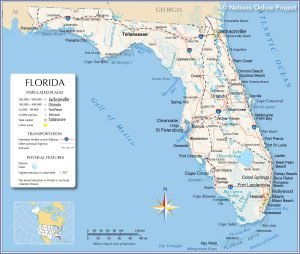A Nobel Prize for Elon Musk?
There’s a Change.com petition asking the Swedish Nobel Committee to consider Elon Musk for the Nobel Prize in Economic Sciences floating around the Internet. While it’s uncertain that the Nobel committee would seriously consider a businessman – however successful – for the Nobel instead of an academician, a nod from Nobel would not necessarily be a bad thing.
It’s not that I take the Nobel Prize all that seriously. These are the guys who thought Al Gore deserved the Nobel Peace Prize in 2007 for a slideshow on climate change. Is Al Gore more deserving than Irena Sendler, who risked her life to save 2500 Polish Jews from the Nazi death camps? Basically, if the Swedish Nobel Committee wants my respect, they should consistently give the award to the people who are genuinely interested in actually being effective when it comes to making Earth a better place.
This means going way beyond simply raising awareness of issues like climate change or anything else that affects the human species. People may be aware of the phrase “climate change” but don’t always see what that has to do with them in particular or what they can do to help mitigate it. They may have such hard lives that they can’t afford to think beyond where their next meal is going to come from, much less about what Earth is going to be like in 50 or 100 years. These are the people who are most likely to be irritated by somebody who is intent on lecturing them about something they can’t do anything about.
Elon Musk is different not only because he’s a billionaire, but also because he’s genuinely trying to make a difference with companies like Tesla Motors and SolarCity. Electric vehicles like the upcoming Model 3 could put the family vehicle in your garage without sticking it to you at the gas pump, while SolarCity’s solar panel options could reduce the cost of charging the Model 3 along with providing discounted power to your home. Because solar panels produce energy without burning fossil fuels, a typical SolarCity residential installation could offset 178 tons of electricity over the course of 30 years. If Elon Musk ever wins a Nobel prize, he would probably pump the prize money into R&D for the high tech products his enterprises create.
The Model 3 Unveil
As you can see from the above video, Musk is a good marketer who can talk to an audience who has likely had their fill of shady car salesmen. He’s been unfairly bashed for being a good businessman who takes advantage of tax breaks when he can. However, this just means that less money goes into wasteful government spending and more money goes into his businesses so he can innovate real solutions. Elon Musk is someone who can make the system work for him and does not deserve the jealousy simply because he wants to use his money to build a better electric car, lease you some solar panels or create cheaper reusable rockets. These are all activities that require a good cash flow, so of course Musk is going to streamline his overhead costs as much as possible and sell to the audiences that are most willing to pay money for these things.
As I mentioned in my open letter to Elon Musk, his end game includes using work done by SpaceX to create a Martian colony with 80,000 people. He’s mentioned a few times that he would like to retire on Mars. Remember, this is a guy who is realistic enough to avoid economic pipe dreams. Musk has recently announced that he’ll unveil more plans about his planned Martian colony in September. It would be interesting to get more details on what his ideal colony would look like.
The socioeconomic implications of the first successful Martian colony (call it Musk City if you like) would be quite interesting regardless of whether Elon Musk is heavily involved or does no more than provide some of the hardware. It would create thousands of technical and engineering jobs right here on Earth. It may force economists to rethink certain economic models that assume that we’re living in a closed-loop system that has limits even with technological advances that make more efficient use of available resources. It may get more people thinking about opportunities that exist beyond Earth orbit and pave the way for trade routes that crisscross the entire inner solar system.
Is all this worth a Nobel Prize in Economic Sciences? It depends on who you ask. Many of these prizes go to academicians who don’t get directly involved in the real world of business and finances very much. They analyze theoretical topics like “intertemporal tradeoffs in macroeconomic policy” (Edmund S. Phelps, 2006) and “market power and regulation” (Jean Tirole, 2014). If Elon Musk is going to be a serious contender, whoever nominates him may need to make the case that he’s studied how economics work in a real world that includes increased demand for “green” energy and cars that run on something other than gasoline, along with an increased interest in the private applications of space flight.
Learn More About Elon Musk
[ebayfeedsforwordpress feed=”http://rest.ebay.com/epn/v1/find/item.rss?keyword=%28Elon+Musk%2CSpaceX%2CTesla+Motors%2CNobel+Prize%2CSolarCity%29&sortOrder=BestMatch&programid=1&campaignid=5337337555&toolid=10039&listingType1=All&lgeo=1&feedType=rss” items=”10″]












